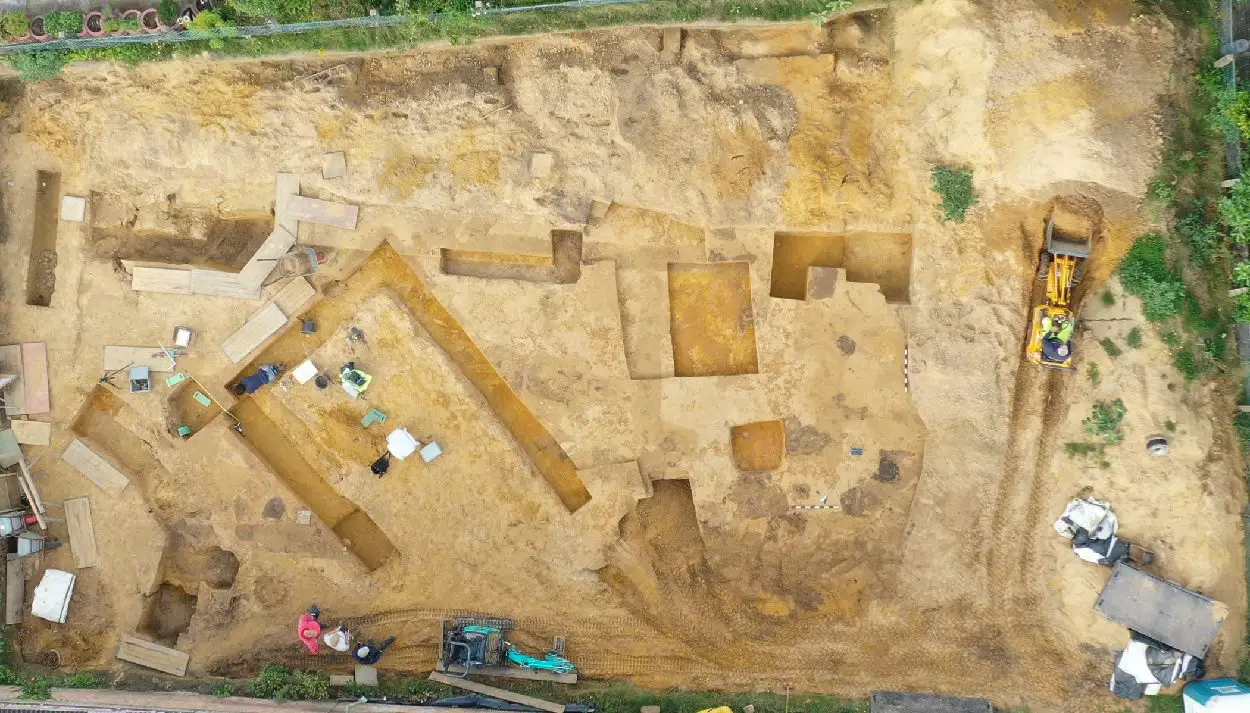Archaeologists from the Regional Association of Westphalia-Lippe (LWL) have uncovered the foundations of two small temples at the Haltern Roman Camp, located in the town of Haltern am See in North Rhine-Westphalia, Germany.
During the Roman period the site was a major military fortress and civilian colony, which according to historians was likely built by the Emperor Augustus who named it Aliso. This was confirmed in 2010 by excavations conducted by the Archaeological Commission of Westphalia, who determined that the site corresponds to the one described in ancient literature as Aliso.
Recent excavations by LWL have found the foundations of two cult temples, one of which was constructed of wood with a rectangular plan measuring 30 square metres and accessed via a 5 metre wide entrance way marked by two wooden columns on either side.
Both temples are located in a 2,000 square metre complex previously examined in 1928, which Westphalian chief archaeologist Prof. Dr. August Stieren, initially identified as meeting house for military personnel. In later years the complex was converted to hold a military workshop, evidenced by numerous tools found in situ.
“The two rectangular cult temples consisted only of clay frameworks,” says LWL Roman expert Dr. Bettina Tremmel. “But they were based on the typical large podium temples made of stone that could be found in numerous Roman cities at the time of Emperor Augustus.”
According to the researchers, the discovery is unique as there have been no other examples of cult buildings previously unearthed in Roman military installations.
Adjacent to the cult temples is a circular ditch which has been preserved as a discoloration in the oil. The depth and the Roman finds it contains are comparable to the Roman burial ground in Haltern, however, the practice of burials within such settlements was forbidden under Roman law.
Header Image Credit : LWL/C. Hentzelt





